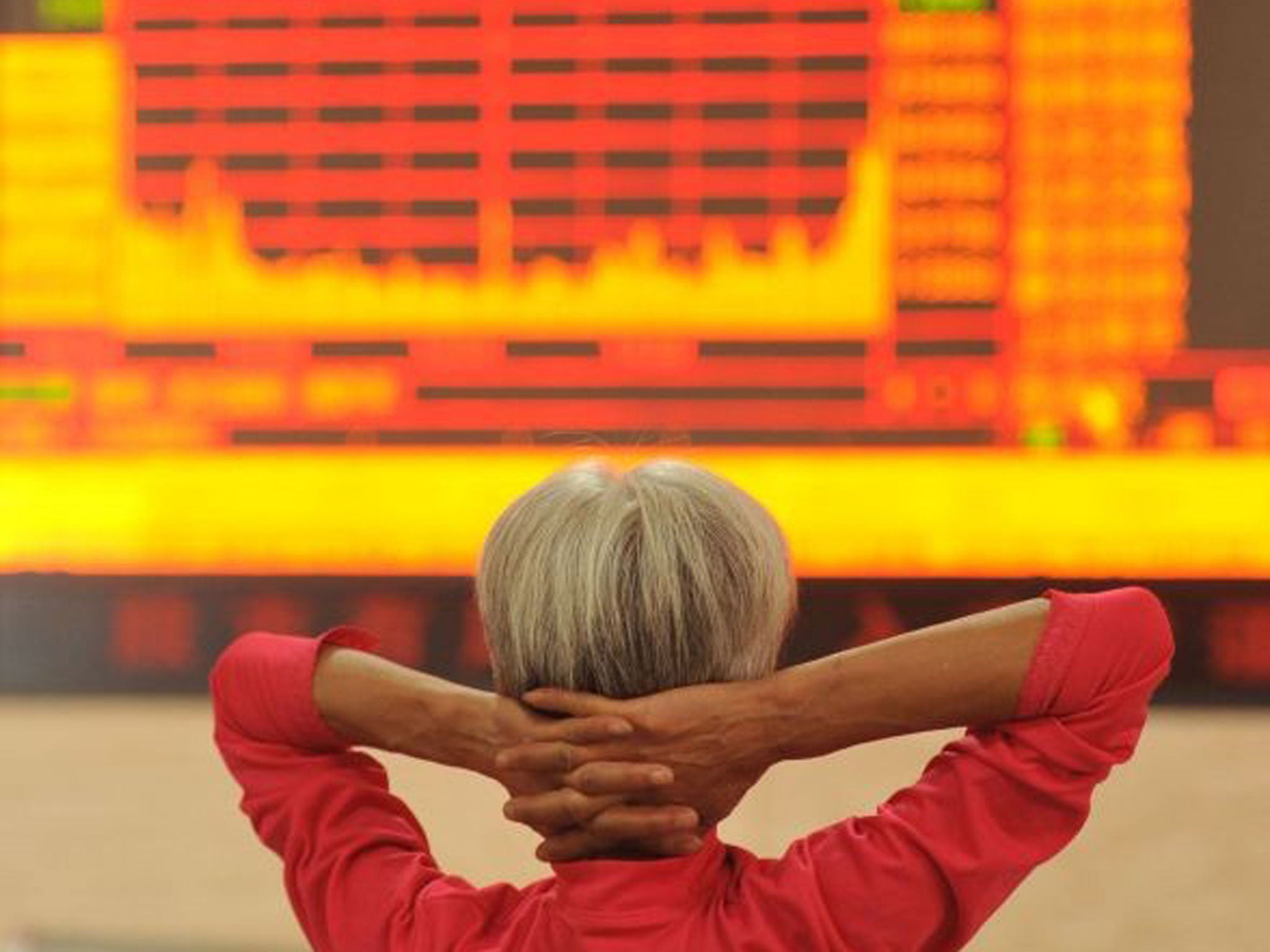Should stock market investors 'sell everything' or keep calm and carry on?
A Royal Bank of Scotland chief has told investors to flee the markets, but Simon Read finds share forecasts are fallible and panic selling brings losses

The taxpayer-owned Royal Bank of Scotland this week warned its investor clients to "sell everything".
Andrew Roberts, credit chief at the bank, said 2016 will be a "cataclysmic" year. "China has set off a major correction and it is going to snowball."
Scary stuff – but is he right and should investors take immediate action and flee from the stock market?
"It is rarely sensible to buy or sell investments based on greed or panic," said Patrick Connolly, a certified financial planner at the adviser Chase de Vere. He rightly pointed out that no one can consistently make accurate predictions of whether markets will fall or rise. "So RBS is just as likely to be wrong as it is to be right. If it could really predict stock market movements, it would have recommended selling out when markets peaked last April," he said.
Darius McDermott, managing director of the fund supermarket Chelsea Financial Services, agreed that it's a bad idea to sell everything, especially if investors are in panic mode. "It usually just results in crystalising losses and there is a tendency to stay out of the market longer than you should," he warned.
If you look hard enough, you can always find who will tell you markets are about to crash – but they are normally wrong, believes Ben Brettell, senior economist at the adviser Hargreaves Lansdown. "Historically, equities have been the best asset class over the long term, and listening to the Private Frazers of this world [the Dad's Army character who said 'we're doomed'] has been a mistake."
Mr Brettell echoed Mr McDermott's point about it being easy to be panicked into selling, but added that few will have the courage to buy back in when markets are lower. "Did those who sold in 2008 buy again when the market bottomed in 2009?" he asked – the answer clearly being "no".
This underlines the point that timing the market is impossible. While every investor would love to be able to buy at the bottom and sell at the top, most of those who act on short-term trends or news tend to do the exact opposite.
If everyone followed the RBS advice and sold everything except high-quality bonds, it would almost guarantee another market collapse, said Jamie Smith-Thompson, managing director at the adviser Portal Financial.
Get a free fractional share worth up to £100.
Capital at risk.
Terms and conditions apply.
ADVERTISEMENT
Get a free fractional share worth up to £100.
Capital at risk.
Terms and conditions apply.
ADVERTISEMENT
"That's not to say there is no basis in the caution from RBS," he added. "Given the volatility in China, the machinations of the oil industry and the precariousness of the UK economy, it is likely that the market will continue to suffer this year." But the investment world has ever been thus. Markets go up and markets go down.
In fact Brian Dennehy, managing director of FundExpert.co.uk, believes the "sell everything" call could actually indicate that the worst is over.
"The RBS note is a great contra-cyclical indicator" he explained. "Typically, no one ever says anything like this with any degree of clarity at the top of the market – but invariably do nearer the bottom."
That doesn't mean that now is the time to dip your toe in the market in the hope of making a quick buck, warned Mr Smith-Thompson.
"If you are planning to invest for the short term then now may not be an ideal time to wade in – but in the long term, markets have always performed, so we see no reason to panic if you are a long-term investor."
If you are worried, though, it may be wise to make some adjustments to your portfolio, said Mr McDermott.
"There are things you can do to reduce the volatility of your own personal pot of money. The key is to have a well-diversified portfolio. It's a boring solution but boring is good when markets are falling!"
His firm is backing targeted absolute return funds. "They are under-owned by UK investors, but we believe investors shouldn't be afraid to have a decent chunk of their portfolio in this type of fund in these markets – spread across a number of different types."
He highlights the Henderson UK Absolute Return and Smith & Williamson Enterprise funds, which are long/short equity investments.
Why are the stock markets so volatile?
Darius McDermott at Chelsea Financial Services explains the backdrop to this week's "sell everything" warning
With the 'will they/won't they?' question of rising interest rates in the US finally put to bed, markets have gone in search of a new driver, and all eyes now seem to be on China – even though there is no 'new' news.
A slowing Chinese economy is no surprise to anyone. But it is a worry and it's not the only one.
Could the oil price really fall as low as $20 per barrel? Will emerging markets weather the storm of higher US dollar loan rates?
Can the European Central Bank president Mario Draghi really do whatever it takes and get Europe back on its feet? Will the Japanese have the patience to give prime minister Shinzo Abe's growth plan time to work?
Will Donald Trump be US president? Can a peace agreement be put into practice in Syria?
That's quite a few major 'known unknowns' and there are bound to be some 'unknown unknowns' around the corner.
And one thing I have learnt over the years is that markets really don't like the unknown, so the volatility could continue all year.
Join our commenting forum
Join thought-provoking conversations, follow other Independent readers and see their replies
Comments
Bookmark popover
Removed from bookmarks